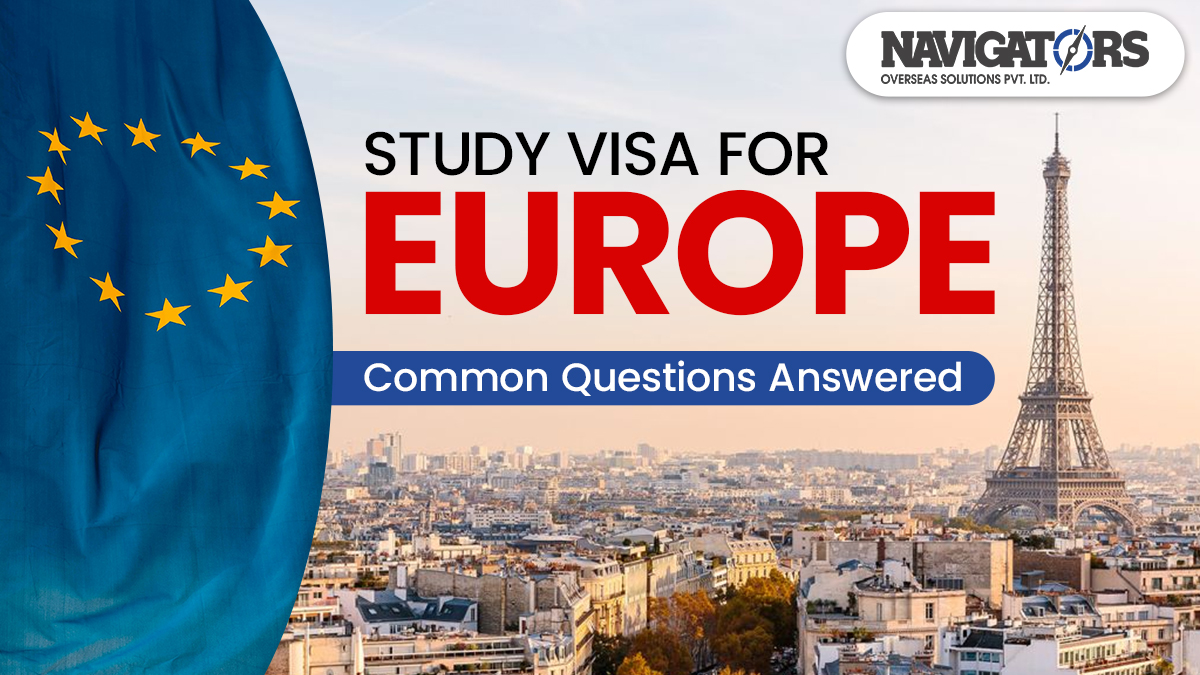- SCO 99, Sector 44-C, Chandigarh, India-160047
- +91 98090 90908
- navigators@ymail.com

Embarking on an educational journey in Europe is a dream for many. With its diverse cultures, world-class universities, and academic excellence, Europe attracts students worldwide. However, navigating the study visa process can be overwhelming. In this guide, we address the most common questions about obtaining a study visa for Europe, ensuring a smoother path to achieving your academic goals.
A European study visa allows international students to reside temporarily in a European country for the purpose of education. Each country in Europe has its own set of visa types and requirements. For instance:
Non-EU/EEA students typically require a visa to study in Europe. If you’re a citizen of the EU/EEA, you don’t need a visa but may need to register with local authorities depending on the duration of your stay.
Although specifics vary by country, the basic requirements include:
The visa processing time varies by country:
Most European countries allow part-time work for international students:
Many European countries offer post-study work opportunities:
Securing a European study visa is a pivotal step toward achieving your educational ambitions. By understanding the process, requirements, and opportunities, you can confidently navigate the journey. Start your application today and unlock a world of possibilities in Europe!